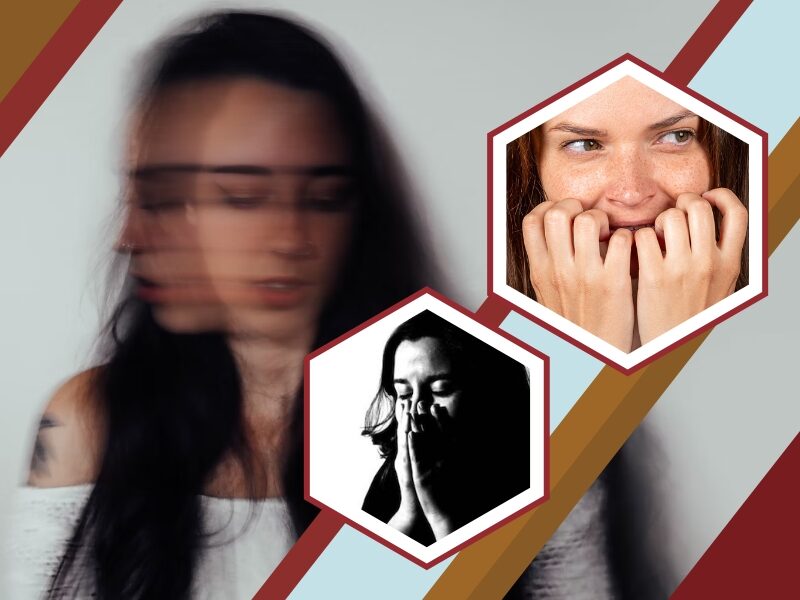What is GAD (General Anxiety Disorder)

What is GAD?
GAD or general anxiety disorder is a condition where you have persistent worrying or uncontrollable anxiety. Generalized anxiety disorder has symptoms that are similar to panic disorder, obsessive-compulsive disorder, and other types of anxiety, but they’re all different conditions. Living with generalized anxiety disorder can be a long-term challenge. Common causes of worries include your health, money, family, or work.
What are the Symptoms of GAD?

- Being easily fatigued
- Feeling restless, wound-up, or on edge
- Being irritable
- Having difficulty concentrating
- Difficulty controlling feelings of worry
- Having muscle aches, headaches, stomachaches, or unexplained pains
- Panic disorder
- Having sleep problems, such as difficulty falling or staying asleep
Symptoms of General Anxiety Disorder in Children and Teenagers
- Excessive worries about school performance
- Persistent worrying about the safety of family members
- Uncontrolled thoughts on nuclear war or other catastrophic events
A child or teen with excessive worry may:
- Lack confidence
- Strive for approval
- Require a lot of reassurance about performance
- Feel overly anxious to fit in
- Be a perfectionist
- Spend excessive time doing homework
- Have frequent stomachaches or other physical complaints
- Avoid going to school or avoid social situations
Causes and Risk Factors of General Anxiety Disorder
GAD likely arises from a complex interaction of biological and environmental factors, which may include differences in brain function and chemistry, genetics, and the development of personality. Some cases are also triggered by differences in the way threats are perceived. Women are more often affected by this condition than men. The typical risk factors are:
- Personality. A person whose temperament is timid or negative or who avoids anything dangerous may be more prone to generalized anxiety disorder than others.
- Genetics. A generalized anxiety disorder may run in families. For diagnosis, inform your doctor if you have a family history of GAD and or other types of anxiety.
- Experiences. People with a generalized anxiety disorder may have a history of significant life changes, and traumatic or negative experiences during childhood. It may also be a cause of a recent traumatic or negative event. Chronic medical illnesses or other mental health disorders may increase risk.
How to Diagnose General Anxiety Disorders?
To diagnose this condition, your doctor may:
- Do a physical exam to look for signs that your anxiety might be linked to medications or an underlying medical condition
- Assess your symptoms and medical history
- Use psychological questionnaires to help determine a diagnosis
- Order blood or urine tests or other tests
Lifestyle and Homecare for General Anxiety Disorder
- Stay active to reduce stress
- Get enough sleep to help your body renew
- Try some relaxation techniques such as meditation to ease anxiety
- Eat lots of healthy foods to reduce anxiety
- Avoid smoking or using recreational drugs. Cut down on alcohol intake to avoid worsening your anxiety.
Treatment for General Anxiety Disorder

The treatment for GAD depends on the severity of your condition and on how it severely affects your ability to function every day. The two main treatments include psychotherapy and medications.
Psychotherapy. This is also known as talk therapy or psychological counseling. It involves working with a therapist to reduce your anxiety symptoms. Cognitive behavioral therapy is the most effective form of psychotherapy for this condition. It focuses on teaching you specific skills to directly manage your worries and help you gradually return to the activities you’ve avoided because of anxiety. Through this process, your symptoms improve as you build on your initial success.
Medications. Several types of medications are used to treat this condition. Talk with your doctor about the benefits, risks, and possible side effects. Typical prescription medications for GAD are antidepressants and in limited circumstances, experts may prescribe benzodiazepines.
Recommended Medication for GAD
Buspirone. An anti-anxiety medication called buspirone may be used on an ongoing basis. As with most antidepressants, it typically takes up to several weeks to become fully effective. This does not cause addiction or dependence but produces effects similar to that of the benzodiazepines class of drugs.



